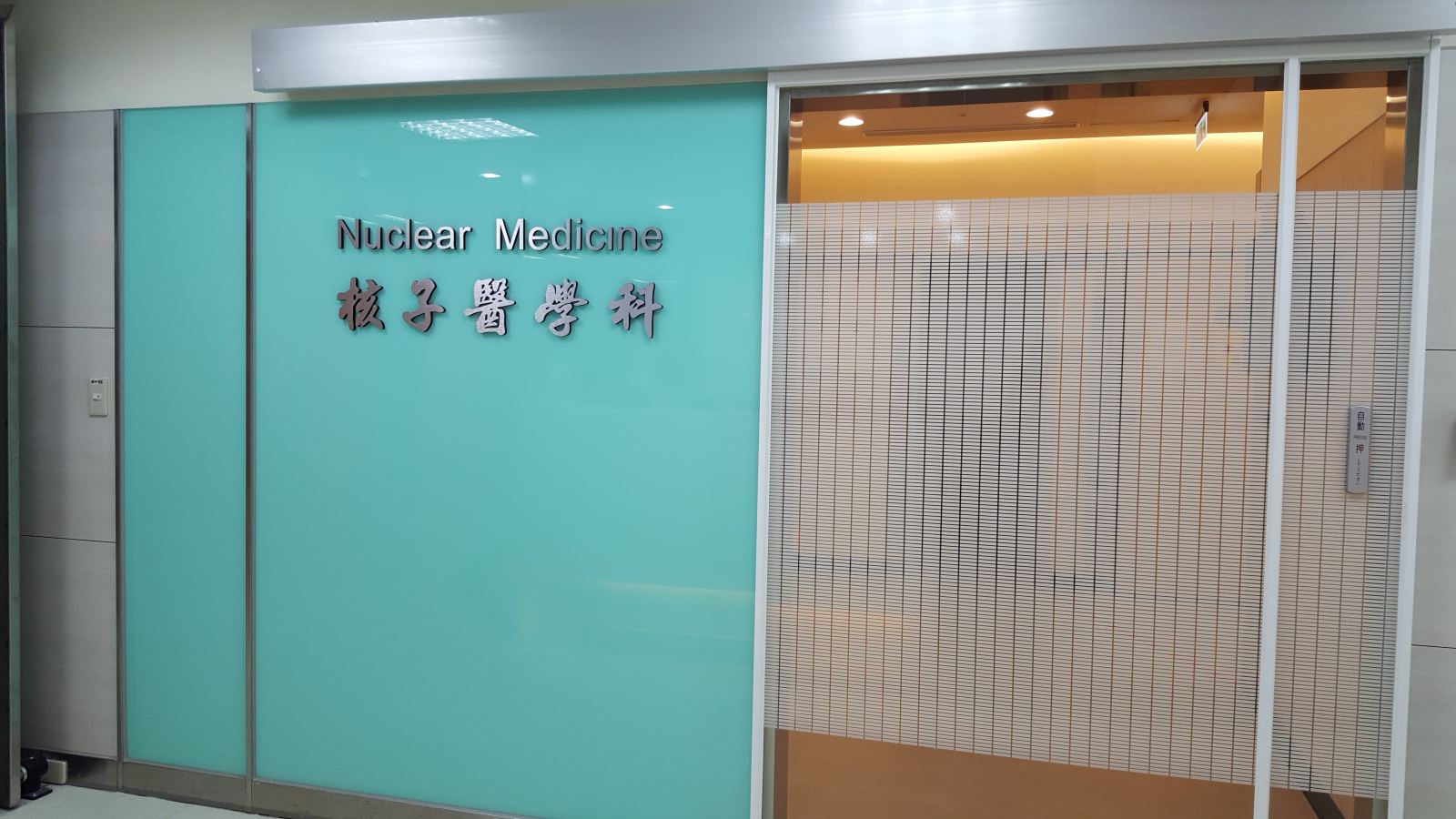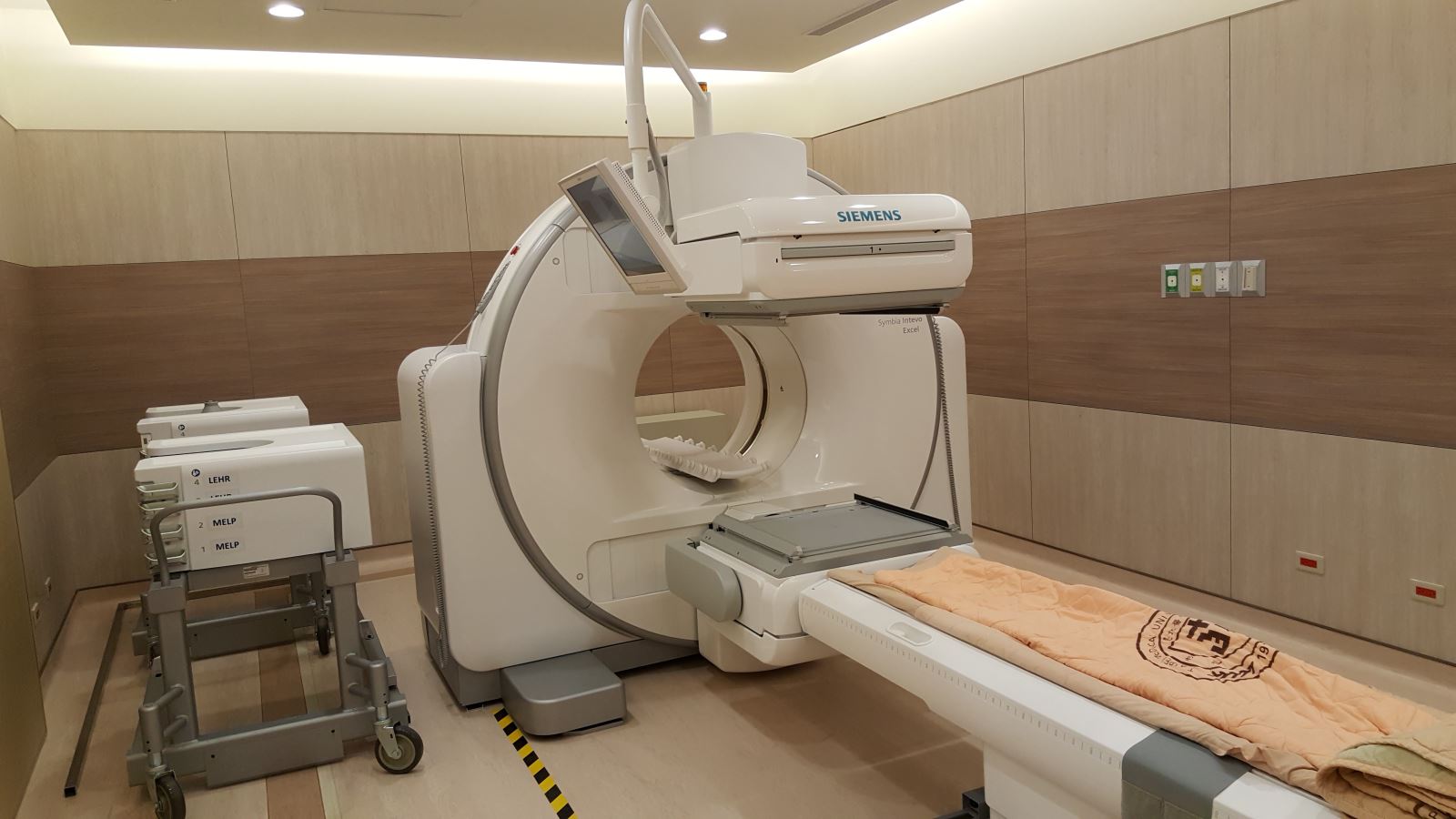Department of Nuclear Medicine

The Department of Nuclear Medicine at Taipei Medical University Hospital was established in 1998. The main diagnostic equipment is a Single Photon Emission Computed tomography (SPECT) and SPECT/CT, Positron Emission Tomography (PET), and Gamma counter. The members in this team include physicians, radiologists, laboratory technicians, and nurses.
Nuclear images are functional, physiological and biochemical. We use radionuclide or radioisotope labeled pharmaceutics for specific organ imaging, mostly whole body bone scan, myocardial perfusion scan, thyroid scan, renal scan and split renal function, dynamic salivary function, sentinel lymph node determination, tumor and inflammatory scans. Our FDG/PET machines allow for malignant/benign tumor differentiation, cancer initial and re- staging, evaluation of the effect of treatment, and prediction of disease outcome. Addtionally, we use radioimmunoassays to measuring the circulation levels of hormones and tumor markers. The diseases we treat are thyroid disorders, employing treatment methods such as radioiodine (I-131) for hyperthyroidism or a low dose I-131 for post-operative thyroid cancer, as well as the recently available Ra-223 for skeletal metastatic prostate cancer.
Services & Treatments

SERVICES & PROGRAMS
Cardiology
- Stress/rest Myocardial Perfusion scan (SPECT)
- Rest Myocardial Perfusion scan (SPECT)
- Cardiac function test (LV & RV EF,Wall motion)
Bone and Joints
- Whole body bone scan
- Three phase bone scan
- Sacroiliac joint scan
Tumor & Inflammation Survey
- Ga-67 Inflammation and tumor scan
- Tl-201 cancer work-up
Neurology
- Trodat-1 Brain SPECT
- ECD brain SPECT
Urology & Nephrology
- Renal function study
- Renal cortical scan (SPECT)
- Scrotal scan
Gastroenterology
- Sialoscintigraphy
- Meckel's diverticulum scan
- Esophageal Transit Study
- GI Bleeding scan
Endocrinology
- thyroid uptake and scan
- I-131 cancer work up
- Parathyroid scan
- Adrenal scan
Lymphatic system
- Sentinel node (breast cancer and melanoma)
- Lymphoscintigraphy
Respiratory system
- Lung perfusion scan
- CAPD & Hepatic Hydrothorax
Radioimmunoassay (RIA)
OUR DOCTORS
Chung-Huei Hsu, MD
Nuclear Medicine
SPECIALTY/PRACTICE AREAS:
• Diagnostic and therapeutic nuclear medicine
• Positron emission tomography (PET) imaging
• Diagnosis and treatment of thyroid disease
• Immunoassay
View profile
LANGUAGES SPOKEN:
• English
• Chinese
Ya-Ju Tsai, MD
Nuclear Medicine
SPECIALTY/PRACTICE AREAS:
• Diagnostic and therapeutic nuclear medicine
• Positron emission tomography (PET) imaging
• PET/CT scan
View profile
LANGUAGES SPOKEN:
• English
• Chinese
CHI-JUNG, TSAI, MD
Nuclear Medicine
SPECIALTY/PRACTICE AREAS:
• Diagnostic and therapeutic nuclear medicine
• Positron emission tomography (PET) imaging
• PET/CT scan
View profile
LANGUAGES SPOKEN:
• English
• Chinese
MENG-TING, CHIANG, MD
Nuclear Medicine
SPECIALTY/PRACTICE AREAS:
• Diagnostic and therapeutic nuclear medicine
• Positron emission tomography (PET) imaging
• PET/CT scan
View profile
LANGUAGES SPOKEN:
• English
• Japanese
• Chinese

